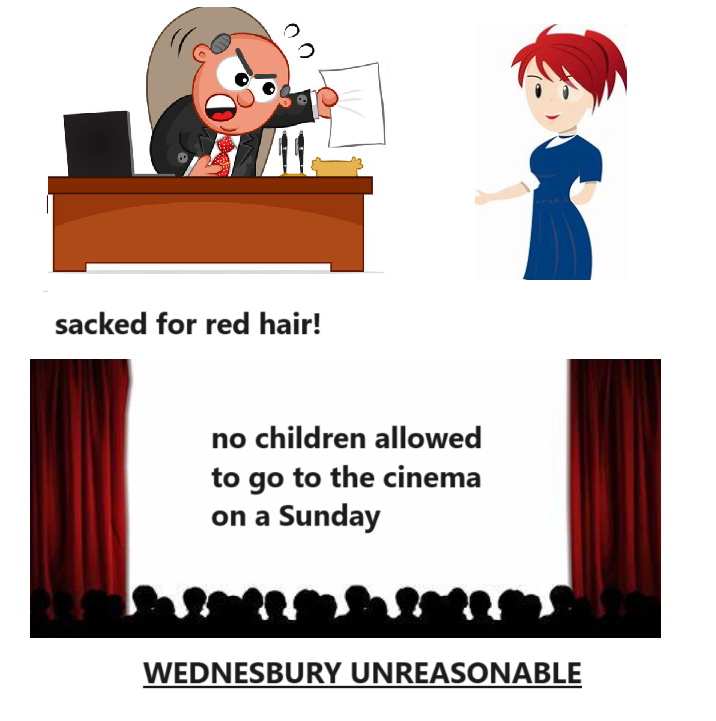Associated Provincial Picture Houses Ltd. v Wednesbury Corporation [1948] 1 KB 223, EWCA
Citation:Associated Provincial Picture Houses Ltd. v Wednesbury Corporation [1948] 1 KB 223, EWCA
Rule of thumb:What do you do if a licensing authority, or any part of the public services generally, have made a ridiculous decision? This can be struck down as being Wednesbury unreasonable with the decision invalid.
Judgment:
This case confirmed that the public authority cannot use discretion in a way which is completely irrational – ‘so unreasonable that no reasonable person would ever consider taking such a measure’. The basic facts of this case were that a cinema was granted a license by the Local Council to open on a Sunday, but no children were allowed in on a Sunday. There were no reports regarding why children should not be allowed in on a Sunday. The Court held that this part of the license was not valid because it was totally unreasonable – there seemed to be no point to the order and there had been no rationale via a report as to why it would be unreasonable. This case confirmed that the public services cannot use discretion in such a way that would be totally unreasonable.
Ratio-decidendi:
‘It is true the discretion must be exercised reasonably. Now what does that mean? Lawyers familiar with the phraseology commonly used in relation to exercise of statutory discretions often use the word "unreasonable" in a rather comprehensive sense. It has frequently been used and is frequently used as a general description of the things that must not be done. For instance, a person entrusted with a discretion must, so to speak, direct himself properly in law. He must call his own attention to the matters which he is bound to consider. He must exclude from his consideration matters which are irrelevant to what he has to consider. If he does not obey those rules, he may truly be said, and often is said, to be acting "unreasonably." Similarly, there may be something so absurd that no sensible person could ever dream that it lay within the powers of the authority. Warrington LJ in Short v Poole Corporation [1926] Ch. 66, 90, 91 gave the example of the red-haired teacher, dismissed because she had red hair. That is unreasonable in one sense. In another sense it is taking into consideration extraneous matters. It is so unreasonable that it might almost be described as being done in bad faith; and, in fact, all these things run into one another’, Lord Greene at 229

Warning: This is not professional legal advice. This is not professional legal education advice. Please obtain professional guidance before embarking on any legal course of action. This is just an interpretation of a Judgment by persons of legal insight & varying levels of legal specialism, experience & expertise. Please read the Judgment yourself and form your own interpretation of it with professional assistance.

